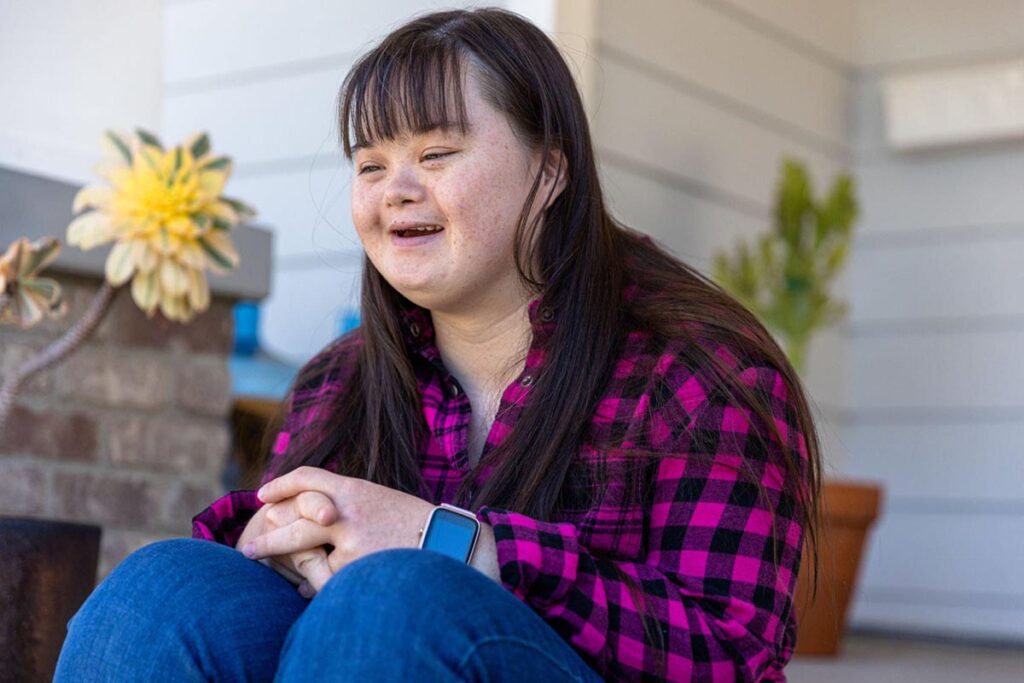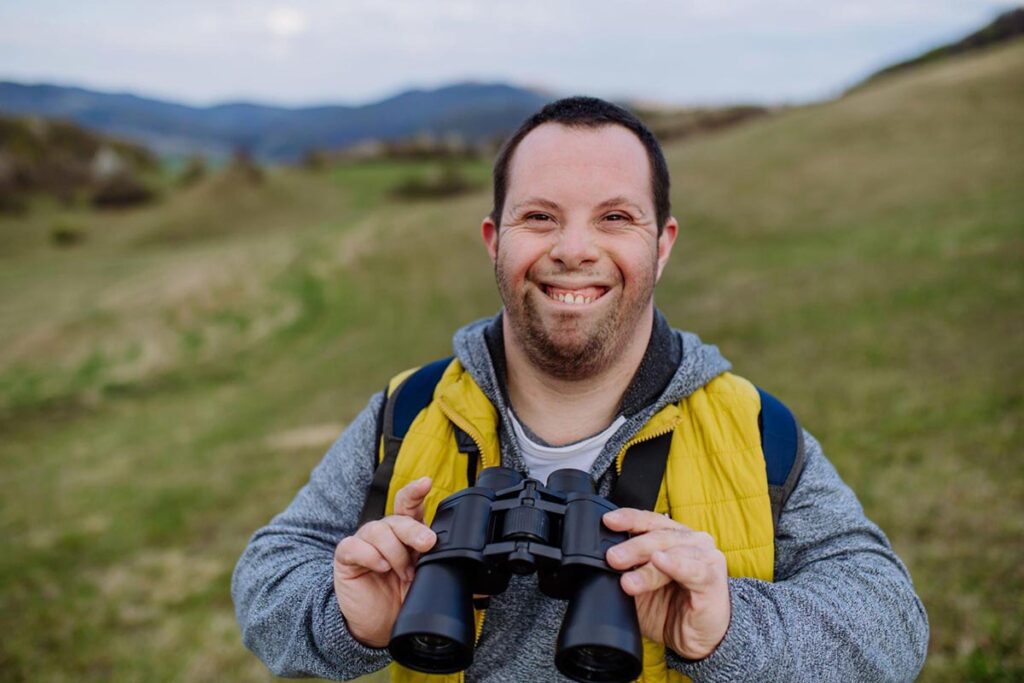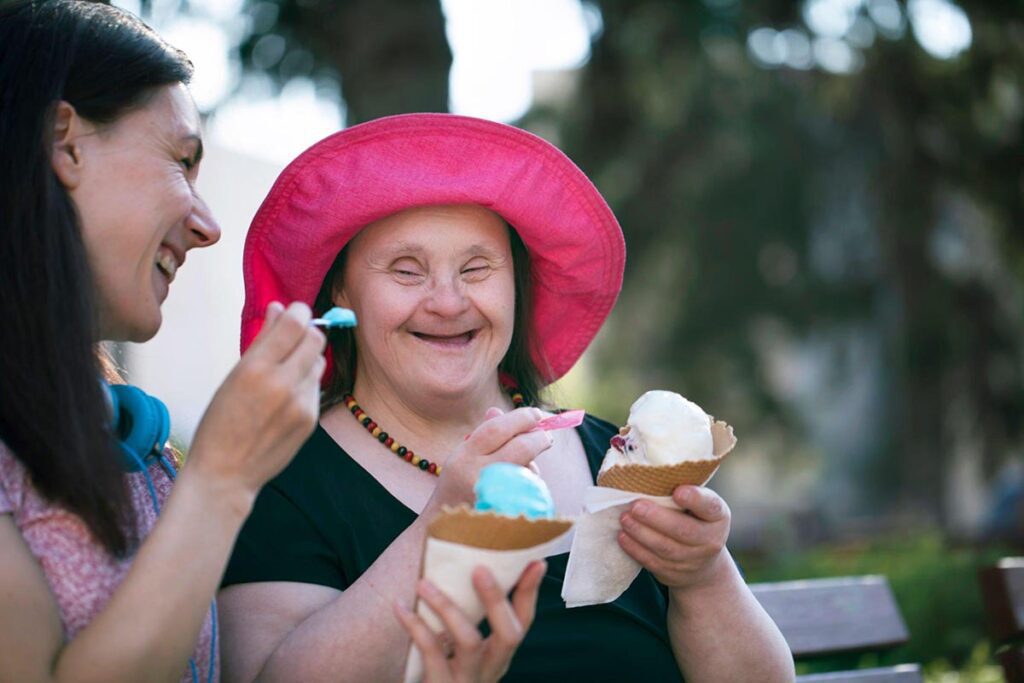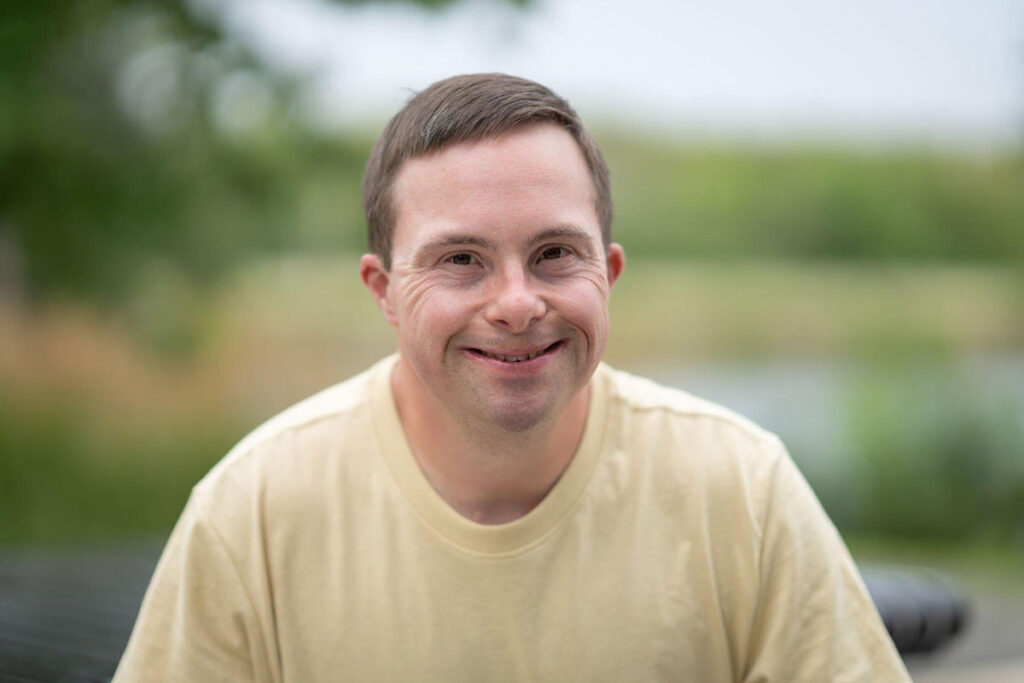Health Issues Associated with Down Syndrome
People with Down Syndrome are at an increased risk of developing certain health conditions, for example, Alzheimer’s disease. Today, with the general medicine advancements, despite all of the health problems associated with Down Syndrome, the life expectancy for people with Down Syndrome is getting higher.
Heart Defects
Heart defects occur in up to 47% of people diagnosed with Down Syndrome, while congenital heart disease is the most common type in children with Down Syndrome. That’s why babies are checked for health and medical issues at birth and then again at six weeks.
Congenital heart disease can also lead to high blood pressure, putting a strain on the heart and making it unable to pump blood effectively. Some of the other types of heart conditions include:
- Atrioventricular septal defect
- Ventricular septal defect
- Persistent ductus arteriosus
- Tetralogy of Fallot

Infections
Down Syndrome is often associated with a weakened immune system, making it harder for the body to fight infections.
Because of these abnormalities in the immune system, people with Down Syndrome are at an increased risk of developing autoimmune disorders, infectious diseases like pneumonia and even forms of cancer. Also, respiratory infections are more common, as well as infections of the skin and bladder.
Hearing Loss
Many risk factors are identified related to hearing loss among people with Down Syndrome. Some include narrower Eustachian tubes, parts of the ears that drain fluid from the middle ear.
The narrow tubes prevent fluid from being drained quickly, leading to blocked ear canals and ear infections. Due to anatomical differences, wax builds up in the ear canal, which can lead to hearing loss if left untreated. Luckily today, several interventions are available to treat the effects of hearing loss.
Vision Impairment
The most pronounced anatomical characteristic for people with Down Syndrome is the feature of the eye. Due to this feature, some vision problems may occur; however, that is not the only factor contributing to vision impairment in people with Down Syndrome.
Some of the most common vision issues that occur include:
- Keratoconus – the thinning of the lens on the front of the eye
- Cataracts – cloudy grey spots that obstruct the vision
- Glaucoma – increased pressure in the eyeball that presses down on the optic nerve
- Farsightedness
- Near-sightedness
- Astigmatism
- Strabismus
Thankfully, for some of these conditions, especially at a younger age, some solutions can help prevent further enhancement of vision issues.
Hypothyroidism
Hypothyroidism is the most common problem in children with Down Syndrome, which results from faulty thyroid glands.
The thyroid gland is responsible for controlling how fast the body will burn up energy, create new proteins and regulate hormones. Hypothyroidism means that the creation of the thyroxin hormone is decreased, while this hormone is responsible for brain growth and the growth of other bodily tissue.
Hypothyroidism in people with Down Syndrome can be present at birth or acquired later in life. Some of the most common signs that point to having thyroid abnormalities include:
- Fatigue
- Lack of energy, need for excessive sleep
- Temperature intolerance
- Weight gain
- Trouble focusing

Blood Disorders
People with Down Syndrome can show abnormalities in the blood cells more frequently than the rest of the wider population. The most common blood cell abnormalities include:
- Polycythemia
- Macrocytosis
- Thrombocytopenia
- Thrombocytosis
- Leucopenia
- Transient myeloproliferative disorder
- Leukemia
Leukaemia is a type of cancer of the blood cells. It is more common in children with Down Syndrome, and the onset is usually between ages one and four.
Problems with Bones and Spine
In a small number of children with Down Syndrome, there’s an increased mobility of the neck. Musculoskeletal issues are common in people with Down Syndrome, and there are multiple reasons for this. Some children might have lax ligaments and extremely mobile joints, while other children can have poor muscle tone.
Also, there are cases of various spinal issues that can ultimately lead to spinal cord compression. The signs this has happened include:
- Numbness
- Neck pain
- Restricted neck movement
Sleep Apnea and Sleep Disorders
Sleep apnea is defined as difficulty with breathing during sleep which can lead to a lowered level of oxygen in the body. There are two main types of sleep apnea:
- Obstructive sleep apnea
- Central sleep apnea
Sleep apnea is more common in children with Down Syndrome due to enlarged tonsils, adenoids, and narrowed airways.
Dental and Gum Problems
Dental care is essential for everyone. However, people with Down Syndrome are at an increased risk for gum disease due to the inability of their immune system to naturally protect against some of the bacteria that can be found in the mouth.
The good news is that, just like anyone else, brushing and flossing will keep the gums clean and lower the chances of inflammation.
Health Issues for Adults with Down Syndrome?

As we age, we all face health issues for various reasons. For adults with Down Syndrome, it’s the same. They can also be at risk of heart disease, celiac disease, memory loss and even depression.
But even though adults with Down Syndrome are more prone to various health issues, thanks to the improvements in healthcare and better education, more adults today have a longer life expectancy.
Memory Loss
People with Down Syndrome are at a more considerable risk of developing Alzheimer’s disease. Scientists believe the syndrome occurs due to extra genetic material that causes developmental problems, even though all three copies carry “normal” proteins.
Dementia
Although having Down Syndrome puts a person at an increased risk of developing dementia, it doesn’t mean that every person with Down Syndrome will develop it later in life. The changes in memory most likely happen due to the genetic disorder of the gene on chromosome 21 known as an amyloid precursor protein, which plays a huge role in brain changes related to Alzheimer’s disease.
Premature Aging
Adults with Down syndrome experience “enhanced ageing”, meaning they will age faster than the wider population. This means that people with Down’s Syndrome show physical and other signs of ageing earlier than expected for their age.
Some of the signs include:
- Hearing loss
- Vision loss
- Decreased muscle mass
As we all age, it’s essential to remain active and involved in our communities. Ensuring the well-being of people with Down Syndrome as they age includes providing positive support and involving them in meaningful activities, just like our outstanding support workers at Leaf Complex Care do.

Diabetes and Obesity
It’s a common misconception that children with Down’s Syndrome are overweight. However, there’s a relationship between weight gain, diabetes and Down Syndrome.
Children with Down Syndrome often have digestive problems and slower food absorption, making their eating habits even more important. By utilising healthy food choices, eating appropriate portions, avoiding high-sugar foods and remaining active, the chances of developing obesity and diabetes are significantly lower.
Depression
Children with Down Syndrome and even adults experience the same emotions as everyone else. They can also experience depression and anxiety, and mood changes, especially after the loss of a parent or a caregiver. Sometimes, individuals with Down Syndrome can develop depression after being diagnosed with autism spectrum disorders.
Luckily, as society becomes increasingly aware of the importance of mental health, the rates of people with Down’s Syndrome having depression are getting lower. The quality of life for people with Down Syndrome is greatly improved with the right support system.
Will’s Journey
Diagnosed with Down Syndrome at birth, Will was supported most of his life by various care providers that were inconsistent and didn’t meet his needs and preferences. As Will grew older, his mother worried that he would go into crisis and decided that the best thing to do was to keep things as calm as possible and remain indoors.
However, when the support workers at Leaf Complex Care met Will, they developed a Positive Behaviour Support Plan and provided humanised support. After implementing the PBS plan, Will’s life started to improve significantly. The support workers focused on Will’s strengths and abilities, so they started working out, playing basketball, enjoying outdoor activities, and spending time within the community.
“This has enabled Will to become a more active member of his community. He can now attend family functions, whereas before, I was not confident to take him. His team comes along too, but they are respectful of his personal space – which has been a revelation to me.” – Maurizia, Will’s mom.
Leaf Complex Care Supports Individuals with Down Syndrome
At Leaf Complex Care, we focus on delivering personalised and humanised support solutions to assist adults and children with Down’s Syndrome to live independent lives and unlock their full potential.
We are an inclusive organisation that aims to transform healthcare for the better through humanised approach and accepting people for who they are. Our exceptional support workers form meaningful relationships with the people we support and understand their different personalities and interests. If you want to know more about how we can help, contact us today!

